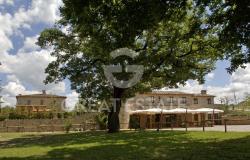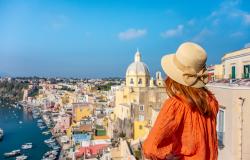 (ANSA) - A statue of saint Jose Maria Escriva, the sometimes controversial founder of the Catholic Opus Dei movement, was installed on Tuesday in a niche outside St Peter's Basilica. The five-metre statue, made of white Carrara marble, stands alongside other great saints on the southern side wall of the basilica.
(ANSA) - A statue of saint Jose Maria Escriva, the sometimes controversial founder of the Catholic Opus Dei movement, was installed on Tuesday in a niche outside St Peter's Basilica. The five-metre statue, made of white Carrara marble, stands alongside other great saints on the southern side wall of the basilica.
The statue is scheduled to be officially unveiled by the pope on September 14. It will be the first new statue at St Peter's to be blessed by Benedict XVI.
St Peter's Basilica already boasts about 400 statues of saints on, in or around it. On the roof of the 16th-century building there are huge figures of Christ, John the Baptist and 11 of the apostles. There are 140 more statues spread over the colonnade
which surrounds the piazza in front of the basilica.
But with two sides each measuring 186 metres and a facade of almost 100 metres long, not to mention the inside area of 21,000 square metres, there is always room for more. The figure of Escriva' stands alongside two other founders of religious orders: Saint Catherine of Siena and Saint Brigid of Sweden. The Spanish cleric who founded the worldwide Opus Dei movement in 1928 was canonised by John Paul II in 2002. The act set the seal on the Catholic Church's full acceptance of the movement which it had initially distrusted.
Between 1967 and 1973, when Opus Dei already numbered 40,000 Catholics, Pope Paul VI refused even to meet Escriva,
wanting to draw a clear line between himself and the regime of General Franco in Spain. The Spanish-born priest was frequently accused of supporting Franco although supporters say he had no choice but to accept the regime. Three members of the group held positions in the Franco government.
Opus Dei is founded on the belief that Catholics could and should strive for saintliness, regardless of their job. It stresses that it is not necessary to be a priest or a nun. It is a highly influential organisation which has members in top positions both in the Catholic Church and in secular society. Many members are high-flyers in business and politics, especially in the Americas.
Opus Dei, which the pope brought under his personal control in 1983, says it has 84,000 members in scores of countries.









